Navigating the intricacies of a divorce can be overwhelming, but having a clear and concise letter template for your divorce decree application can simplify the process. This essential document not only outlines your intentions but also ensures that all necessary information is presented accurately. Whether you're seeking a contested divorce or a mutual agreement, having the right words can make a significant difference in your application. Ready to take the next step in your journey? Keep reading to explore our comprehensive guide on crafting the perfect divorce decree letter!
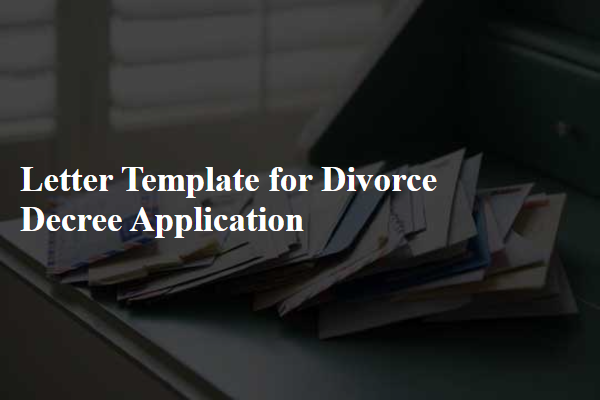
Personal identification information
Completing a divorce decree application requires meticulous attention to personal identification details. Essential information includes full names (including middle names), residential addresses, date of birth, and Social Security numbers for both spouses. It is crucial to provide accurate marital information, such as the date of marriage and the date of separation, alongside any children involved (including names and dates of birth). Furthermore, if applicable, previous names or aliases should be noted for clarity. Ensuring correctness avoids delays in processing the application through the court system, which typically requires submission to the family court in the jurisdiction where the spouses reside.
Mutual agreement and consent
A divorce decree application regarding mutual agreement and consent involves several key elements, including a clear definition of terms such as "mutual consent," which indicates that both parties (the spouses) agree to end the marriage without dispute. The application must provide relevant details such as the date of marriage, names of the parties involved (including middle names), and the jurisdiction (the location where the divorce is filed), which can influence the legal proceedings. Financial arrangements, such as the division of assets and liabilities, child custody agreements, and spousal support terms, should be thoroughly documented to ensure both parties' interests are protected. Additionally, specific local regulations must be noted, highlighting any mandatory waiting periods or required forms unique to the jurisdiction (such as family court rules in various states). Clarity and precision in presenting these details facilitate a smoother process for finalizing the decree without complications.
Legal grounds for divorce
The legal grounds for divorce vary by jurisdiction but generally include irreconcilable differences, abandonment, adultery, or cruel and inhumane treatment. In many states, irreconcilable differences serve as the primary basis, allowing couples to separate without blame. For instance, California recognizes this ground, facilitating a no-fault divorce process. Other grounds, such as adultery, require evidence of infidelity that can impact asset division and custody arrangements. Abandonment, considered a serious legal reason, typically requires proof of the absence for a specified period, often one year. Cruelty involves a pattern of physical or emotional abuse, affecting the court's decisions on spousal support and division of property. Each ground necessitates specific documentation, potentially including witness statements or police reports, reflecting the couple's marital history and circumstances.
Custody and financial arrangements
A divorce decree application often requires detailed information on custody arrangements and financial considerations. Custody refers to the legal responsibility for children, while financial arrangements encompass division of assets, spousal support, and child support. Arrangements can vary greatly depending on jurisdiction, with many states in the U.S. focusing on the best interests of the child as the primary standard for custody. Financial specifics may include monthly income, expenses, and assets like property or retirement accounts. Documentation such as tax returns, pay stubs, and expense reports can be crucial in supporting claims for child support and alimony. Additionally, legal terminologies such as joint custody and sole custody must be clearly defined, especially in terms of visitation rights and decision-making authority.
Contact information and legal representation details
Contact information and legal representation details are crucial elements in a divorce decree application, often requiring accurate and up-to-date entries. The applicant's full name, residential address, and phone number must be clearly stated for proper identification and communication, while the responding party's information is equally important for due process. Legal representation details encompass the attorney's name, law firm, address, and contact numbers, ensuring all parties involved are informed and can navigate the legal proceedings seamlessly. This information facilitates court notifications and legal correspondence, fostering transparency throughout the divorce process.

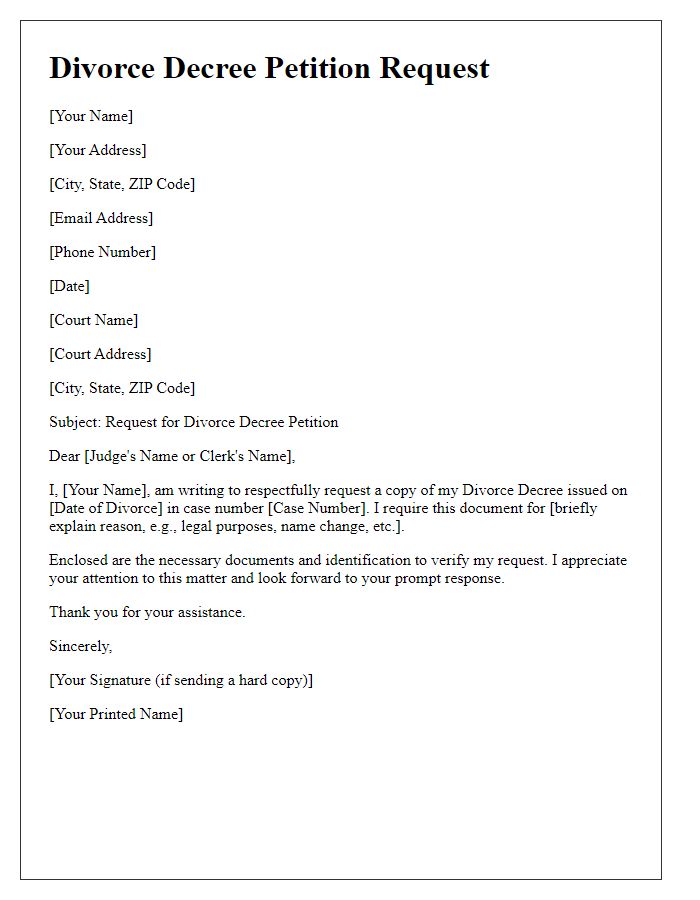
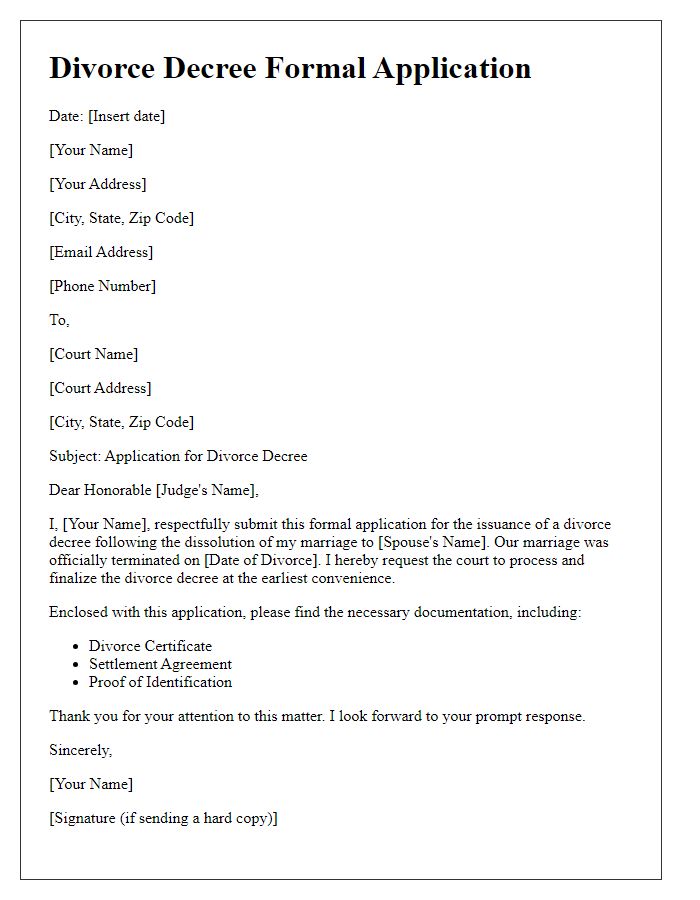
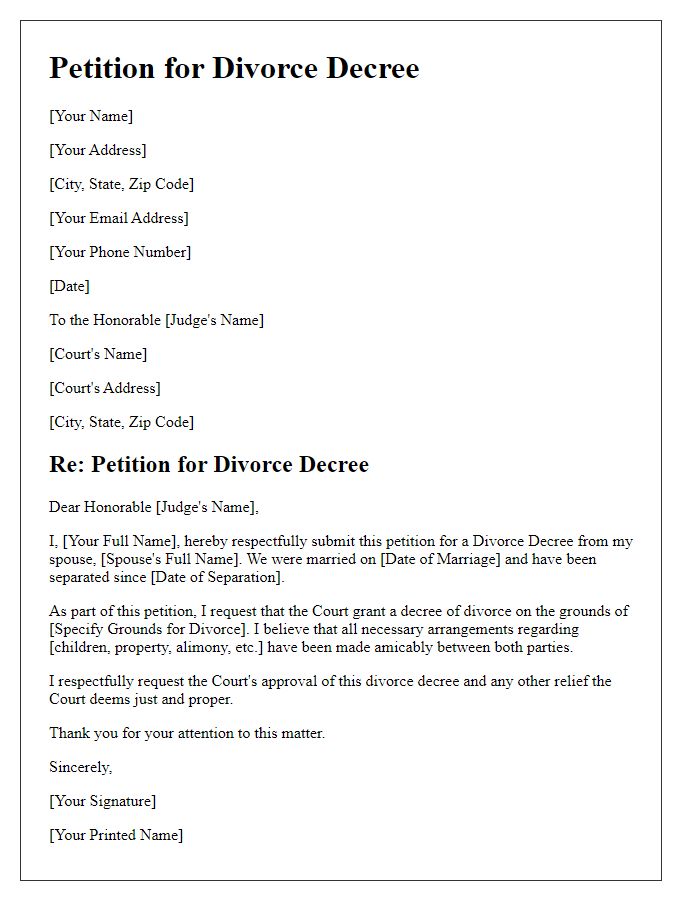
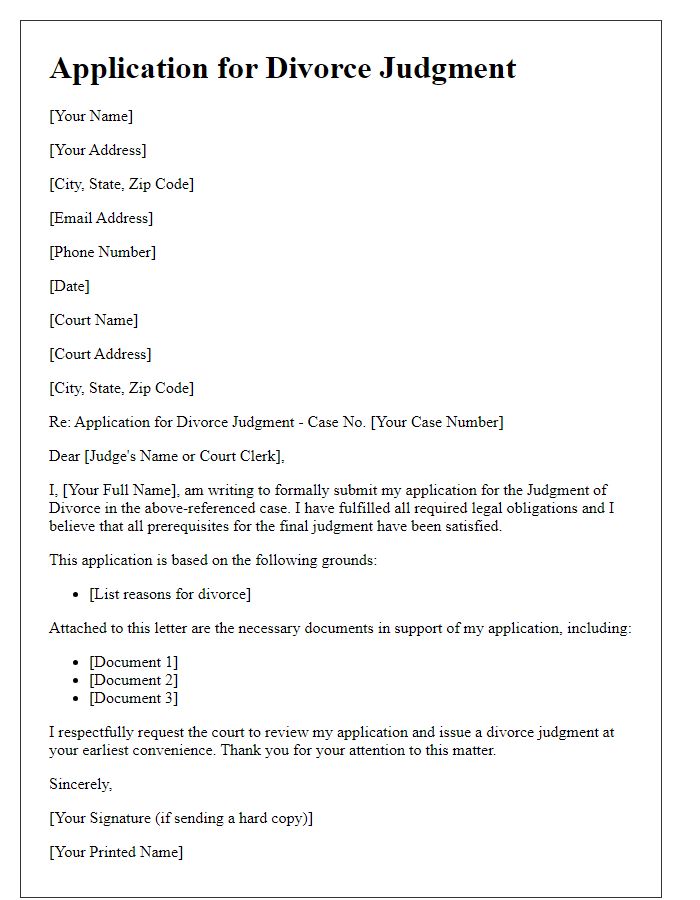
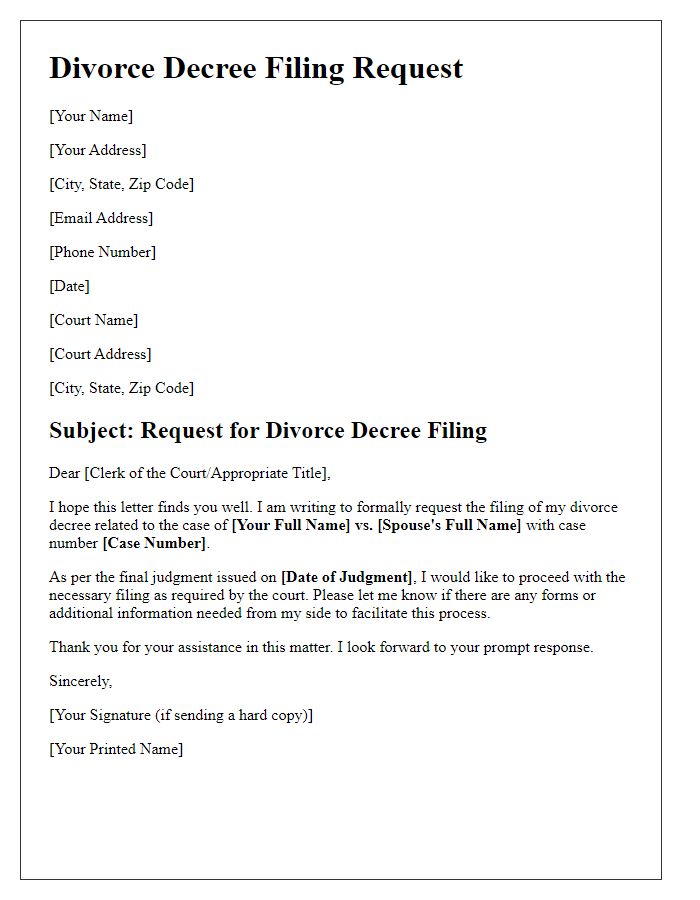
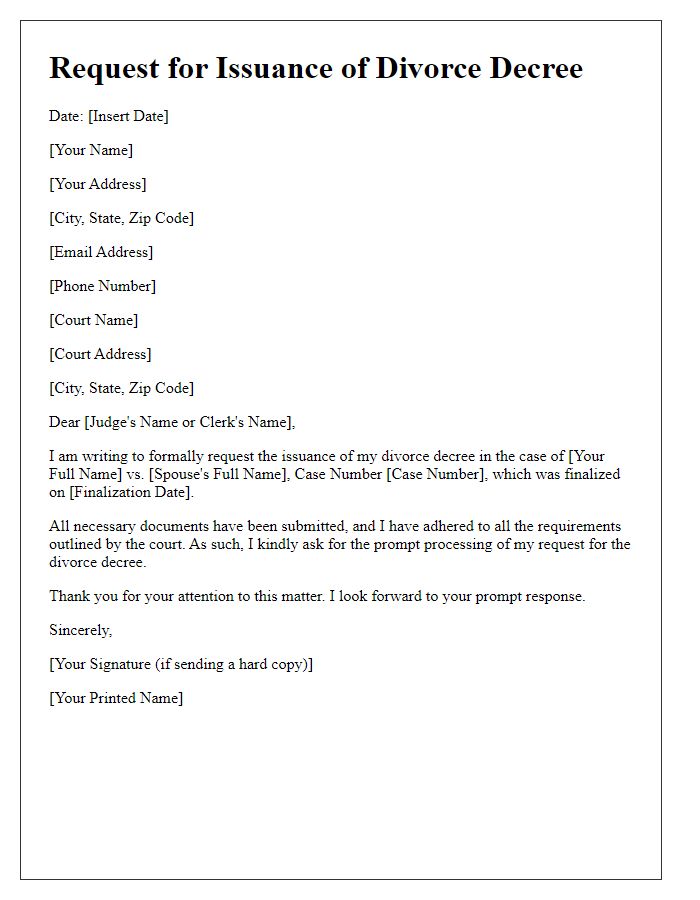
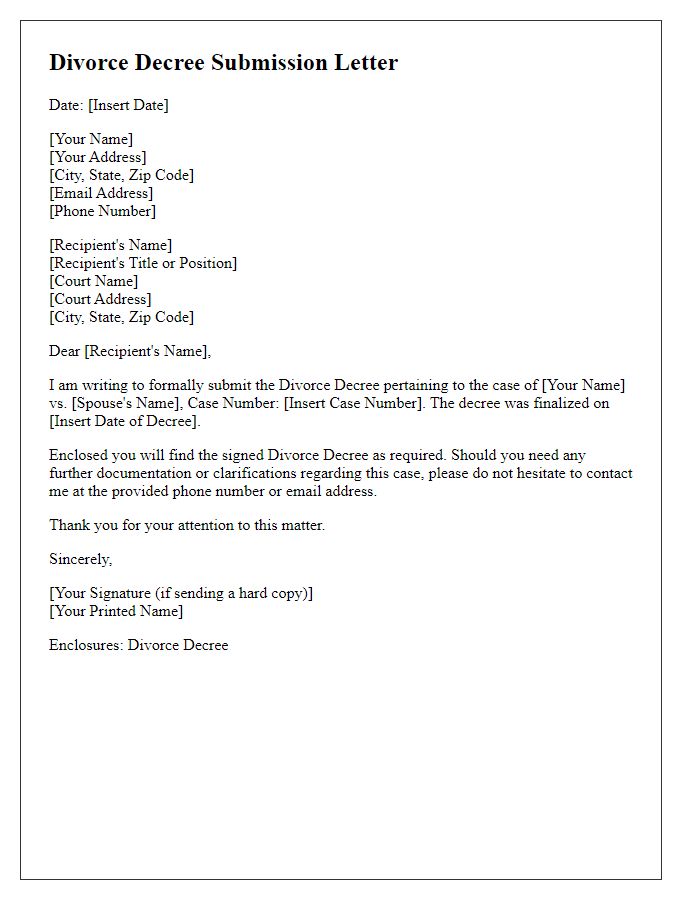
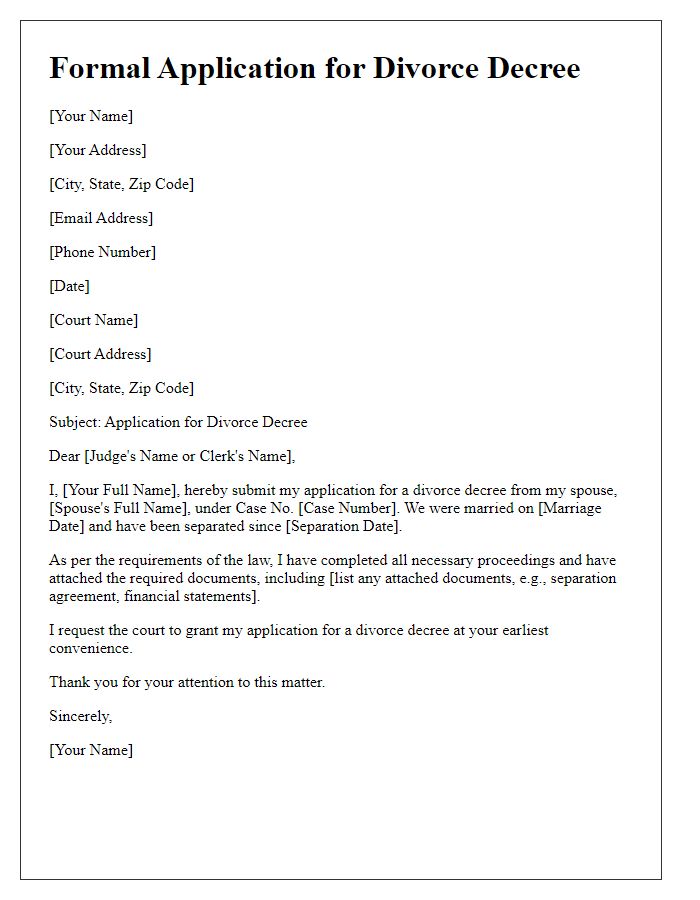
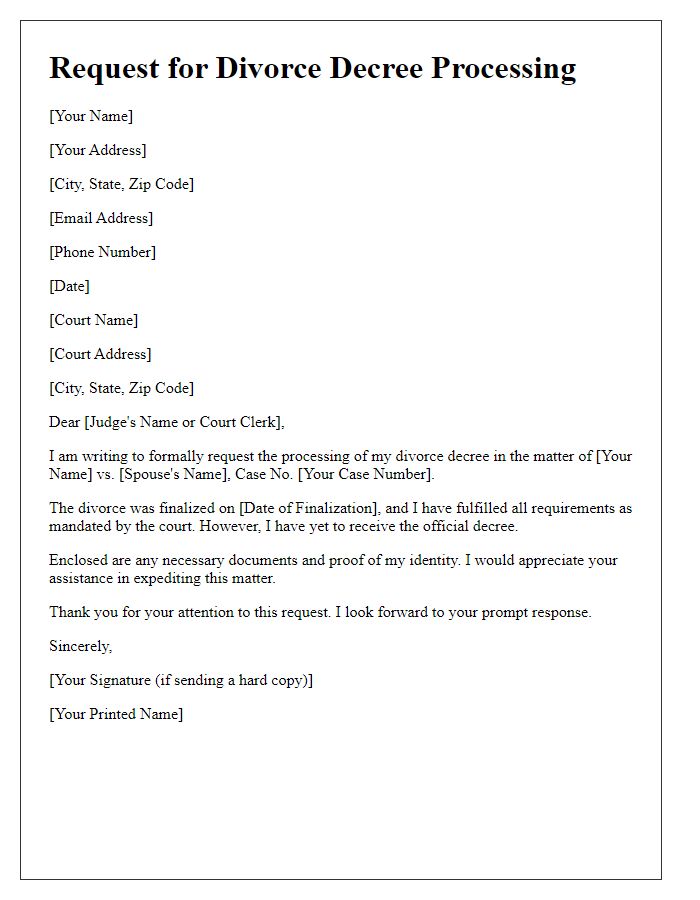
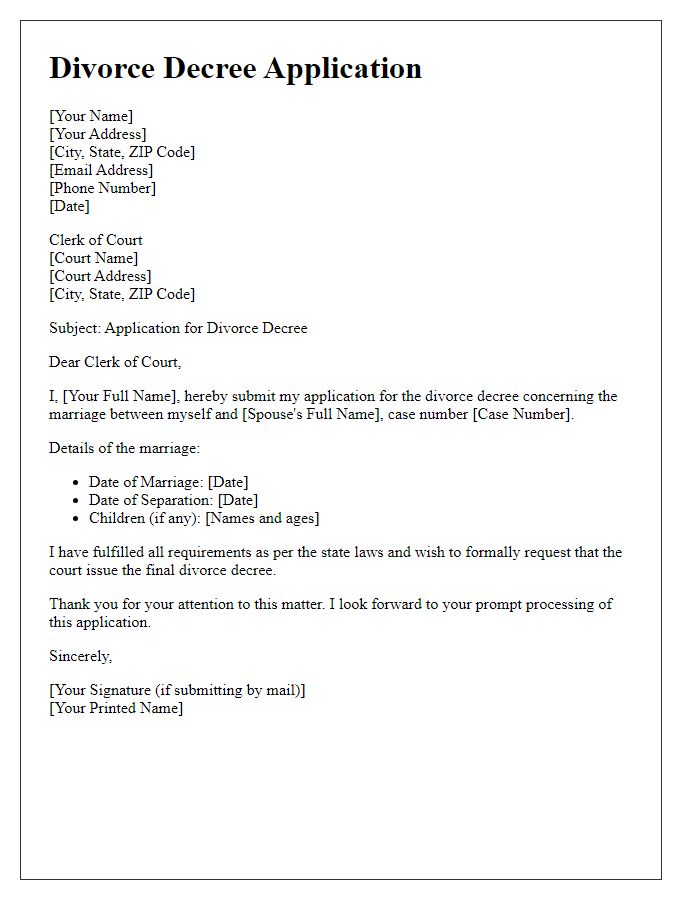


Comments